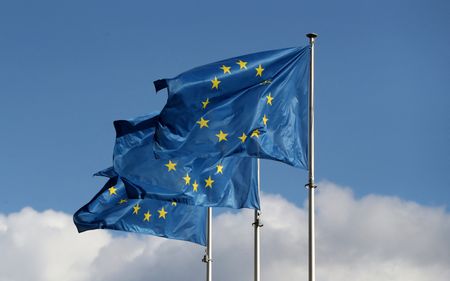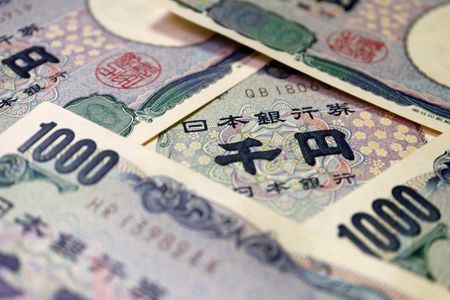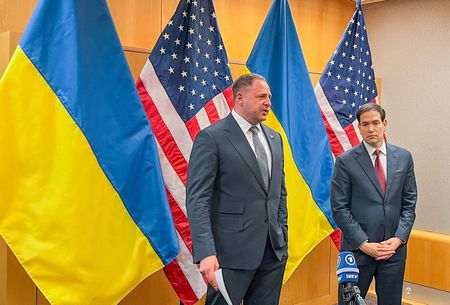By Philip Blenkinsop
BRUSSELS (Reuters) -European Union ministers are set to urge top U.S. trade officials on Monday to apply more of the July EU-US trade deal, such as by cutting U.S. tariffs on EU steel and removing them for EU goods such as wine and spirits.
U.S. Commerce Secretary Howard Lutnick and U.S. Trade Representative Jamieson Greer will meet EU ministers responsible for trade on their first trips to Brussels since taking office.
The EU ministers plan to discuss pressing trade issues, including Chinese rare earth and chip exports restrictions, and host Lutnick and Greer for 90 minutes over lunch.
Under the end-July deal, the United States set 15% tariffs on most EU goods, while the European Union agreed to remove many of its duties on U.S. imports.
That may only happen in March or April, given it requires approval from the European Parliament and EU governments, which EU diplomats say has exasperated Washington.
But while insisting the process is on course, the 27-nation bloc is also pointing to agreed items on which it wants to see progress, chief among them steel and aluminium.
The United States has a 50% tariff on the metals and since mid-August has applied this to the metal content in 407 “derivative” products such as motorcycles and refrigerators. More derivatives may be added next month.
EU diplomats say that such actions, along with the prospect of new tariffs on trucks, critical minerals, planes and wind turbines, threaten to hollow out the July accord.
“We’re at a delicate moment,” one EU diplomat said. “The U.S. is looking for reasons to criticise the EU as we are trying to get them to work on steel and other unresolved matters.”
The bloc additionally wants a broader range of its products subject only to low pre-Trump duties. These could include wine and spirits, olives and pasta.
The EU is also ready to discuss areas of possible regulatory cooperation, such as covering cars, the bloc’s proposed purchases of U.S. energy and joint efforts on economic security, particularly in response to Chinese export controls.
(Reporting by Philip Blenkinsop. Editing by Jane Merriman)










